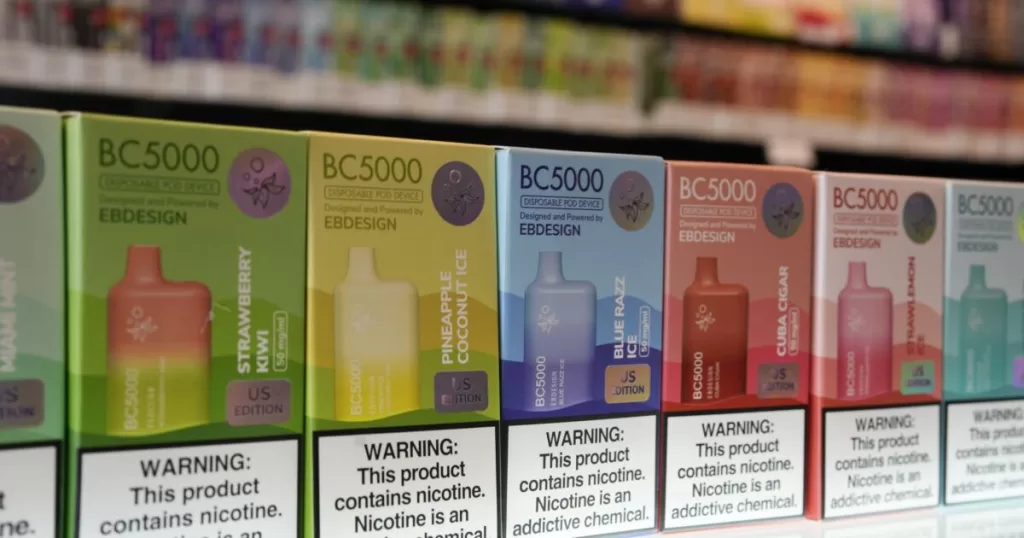WASHINGTON — The Supreme Court on Monday did not sound ready to sharply limit the power of the Food and Drug Administration to prohibit the sale of new candy-colored vaping products aimed at teenagers.
Instead, the justices, both conservative and liberal, said Congress in 2009 gave the agency the power to stop the sale of new tobacco products, and it has used this authority in recent years to reject new vaping flavors with names like “Rainbow Road” and “Peachy Strawberry.”
This is exactly the kind of regulatory question that companies hope to get before the conservative Supreme Court, but it was not clear they will win this time.
Justice Brett M. Kavanaugh questioned the vaping industry’s claim of FDA overregulation, saying its objection rests with the law itself.
“You disagree with the statute giving this authority to FDA,” he told an attorney for two companies whose products were denied approval.
Justice Elena Kagan agreed. “Everyone knows these flavors are particularly dangerous in terms of kids starting the use of smoking product,” she said. “The FDA has been upfront about this. There is not a lot of mystery here.”
The Biden administration defended the FDA’s stance.
The agency admitted it had two related goals. One was to persuade adults to quit smoking by switching to e-cigarettes with appealing flavors, but without encouraging millions of teenagers to start using a product with nicotine.
Eric Heyer, an attorney for two vaping companies, argued the FDA had switched directions and surprised his clients by demanding new studies to prove their products would persuade more adult smokers to switch to e-cigarettes.
His clients won before the conservative 5th Circuit Court in New Orleans, which called the FDA’s decisions “arbitrary” and illegal.
But most of the justices on Monday sounded as though they leaned in favor of the FDA’s view.
Chief Justice John G. Roberts Jr. and Justice Amy Coney Barrett said they were not convinced the FDA had misled the companies.
Other conservative justices voiced support for the industry.
Justice Clarence Thomas said the FDA’s regulations set a “moving target,” and Justices Samuel A. Alito Jr. and Neil M. Gorsuch voiced a similar skepticism.
It’s unclear if the court’s ruling in the months ahead will settle the controversy.
Twice, the attorney for the vaping companies pointed to an impeding change at the FDA with the election of President-elect Trump.
“We have a new administration coming in,” he said, and new agency officials may change the policy.
Kavanaugh said the companies are free to try again.
“You can reapply,” he said.
It’s also not clear the FDA disapproval has much impact. Large numbers of e-cigarette flavors are widely available even if they were not approved by the FDA.
